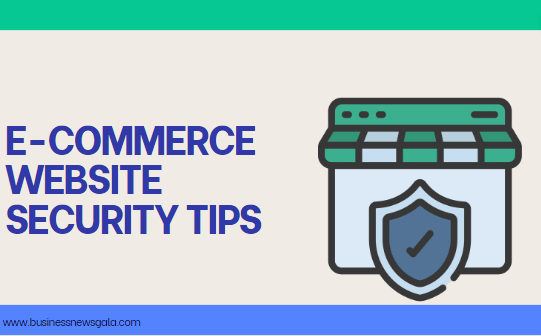Ensuring the security of your website in a fast-paced e-commerce environment, is as important as your brand reputation. Digital brands must be watchful, innovative, and wise on matters of protecting customer’s information as well as brand reputation itself.
This article is going to be about an extensive guide on e-commerce site security where there are valuable tips that any brand can implement in strengthening its online presence.
Understanding the Consequences
Understanding the consequences of a single breach is essential before examining the detailed security measures. The resultant problems of a compromised e-commerce site may include monetary loses, a ruined corporate image and law suits. Consumers offer private as well as financial information to brands but the latter cannot be broken at it has ever lasting effects.
E-commerce Website Security Tips
Implementing HTTPS
One of the foundational steps towards securing your e-commerce website is the implementation of Hypertext Transfer Protocol Secure (HTTPS). This cryptographic protocol encrypts the data exchanged between the user’s browser and the website, ensuring that sensitive information such as credit card details remains confidential. Search engines also favor HTTPS-enabled sites, providing an additional SEO boost.
Regular Software Updates
Outdated software, including content management systems (CMS), plugins, and server software, is a common vulnerability exploited by hackers. Brands must prioritize regular updates to ensure that their e-commerce platform is equipped with the latest security patches. Automated updates can streamline this process, reducing the risk of oversight.
Robust Password Policies
Passwords are often the first line of defense against unauthorized access. Implementing robust password policies, including complexity requirements and regular password changes, can significantly enhance security. Encourage customers to create strong, unique passwords and consider implementing multi-factor authentication for an added layer of protection.
Read Also: Small Business Marketing Guide 2023
Secure Payment Gateways
The heart of any e-commerce operation lies in its payment gateway. Opt for reputable and secure payment processors that comply with Payment Card Industry Data Security Standard (PCI DSS) requirements. This standard sets forth guidelines to ensure the secure handling of credit card information. Regularly audit and monitor your payment processes to identify and address any potential vulnerabilities.
Data Encryption
Encrypting sensitive data, both at rest and in transit, is a fundamental aspect of e-commerce security. Utilize strong encryption algorithms to protect customer information stored on servers and ensure that data transmitted between the website and users is encrypted. This discourages potential attackers by making intercepted data indecipherable.
Regular Security Audits
Conducting regular security audits is essential to identify and address vulnerabilities before they can be exploited. Automated tools can assist in scanning for common issues, but manual audits by cybersecurity experts provide a more thorough examination. Address any identified weaknesses promptly and update security protocols accordingly.
Firewalls and Intrusion Detection Systems
Implementing firewalls and intrusion detection systems adds an extra layer of defense against malicious activities. Firewalls act as a barrier between your website and potential threats, while intrusion detection systems monitor and alert administrators to suspicious behavior. These measures work in tandem to fortify the overall security posture of your e-commerce platform.
User Access Controls
Limiting access to sensitive areas of your website is crucial in preventing unauthorized access. Implement strict user access controls, providing employees and administrators with only the level of access required for their roles. Regularly review and update user permissions to reflect organizational changes and ensure the principle of least privilege is maintained.

Backup and Disaster Recovery Plans
No security system is foolproof, and in the event of a security breach, having a robust backup and disaster recovery plan is paramount. Regularly backup essential data and ensure that the recovery process is tested periodically. This ensures that even in the worst-case scenario, your brand can recover swiftly and minimize potential damages.
Educating Employees and Customers
Human error remains a significant factor in security breaches. Educating employees about best security practices, including recognizing phishing attempts and maintaining strong passwords, is crucial. Additionally, transparently communicating security measures to customers fosters trust and encourages them to remain vigilant against potential threats.
Compliance with Regulations
Different regions have varying regulations governing data protection and privacy. Ensure that your e-commerce website complies with relevant laws, such as the General Data Protection Regulation (GDPR) in the European Union or the California Consumer Privacy Act (CCPA) in the United States. Compliance not only safeguards customer data but also helps avoid legal repercussions.
Ending Note
By implementing above mentioned eCommerce website security tips, you can provide your customers with a secure shopping experience. This will also help you boost credibility and trust to build long term relationships with them.
